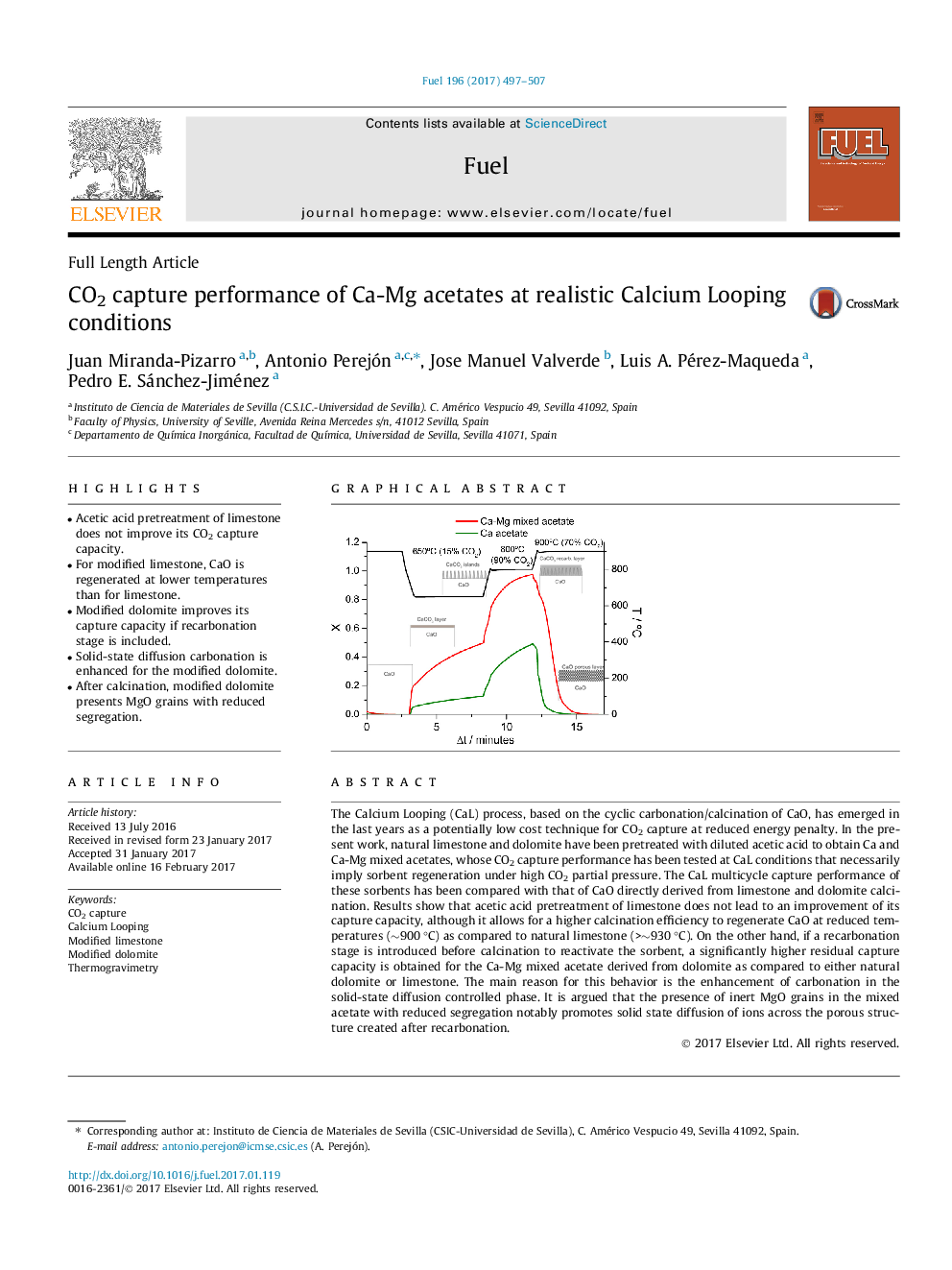| Article ID | Journal | Published Year | Pages | File Type |
|---|---|---|---|---|
| 6475115 | Fuel | 2017 | 11 Pages |
â¢Acetic acid pretreatment of limestone does not improve its CO2 capture capacity.â¢For modified limestone, CaO is regenerated at lower temperatures than for limestone.â¢Modified dolomite improves its capture capacity if recarbonation stage is included.â¢Solid-state diffusion carbonation is enhanced for the modified dolomite.â¢After calcination, modified dolomite presents MgO grains with reduced segregation.
The Calcium Looping (CaL) process, based on the cyclic carbonation/calcination of CaO, has emerged in the last years as a potentially low cost technique for CO2 capture at reduced energy penalty. In the present work, natural limestone and dolomite have been pretreated with diluted acetic acid to obtain Ca and Ca-Mg mixed acetates, whose CO2 capture performance has been tested at CaL conditions that necessarily imply sorbent regeneration under high CO2 partial pressure. The CaL multicycle capture performance of these sorbents has been compared with that of CaO directly derived from limestone and dolomite calcination. Results show that acetic acid pretreatment of limestone does not lead to an improvement of its capture capacity, although it allows for a higher calcination efficiency to regenerate CaO at reduced temperatures (â¼900 °C) as compared to natural limestone (>â¼930 °C). On the other hand, if a recarbonation stage is introduced before calcination to reactivate the sorbent, a significantly higher residual capture capacity is obtained for the Ca-Mg mixed acetate derived from dolomite as compared to either natural dolomite or limestone. The main reason for this behavior is the enhancement of carbonation in the solid-state diffusion controlled phase. It is argued that the presence of inert MgO grains in the mixed acetate with reduced segregation notably promotes solid state diffusion of ions across the porous structure created after recarbonation.
Graphical abstractDownload high-res image (62KB)Download full-size image
